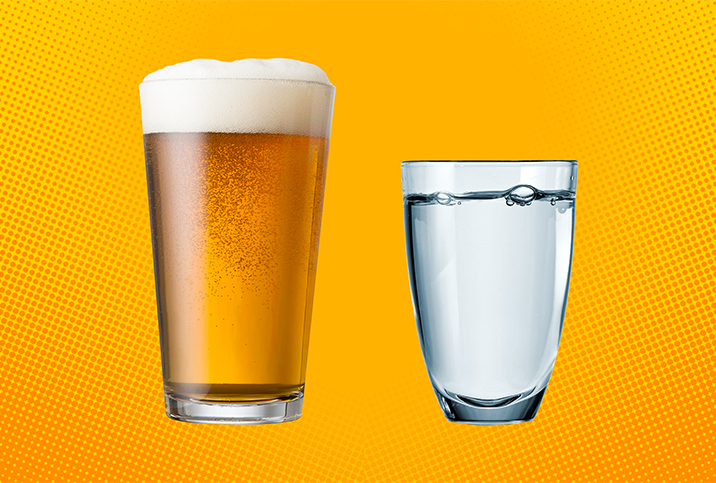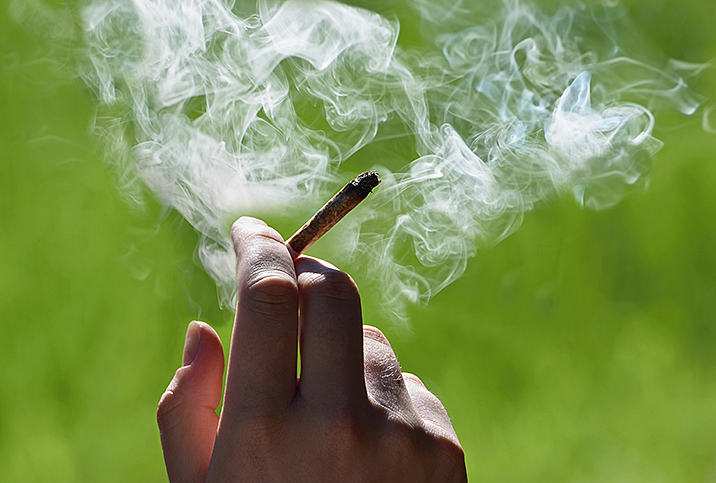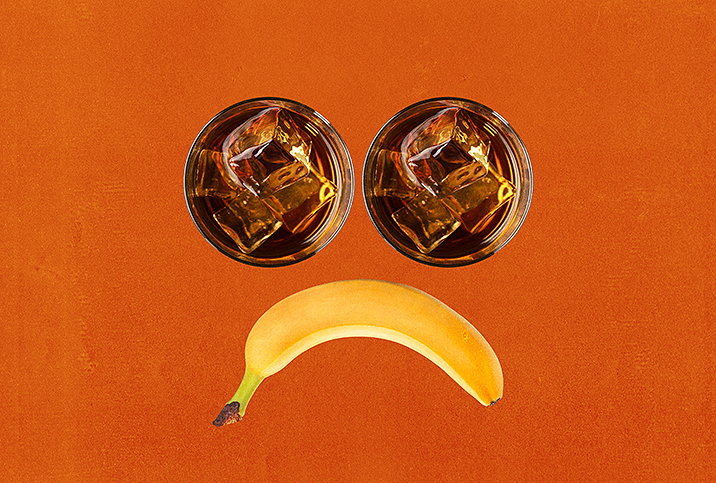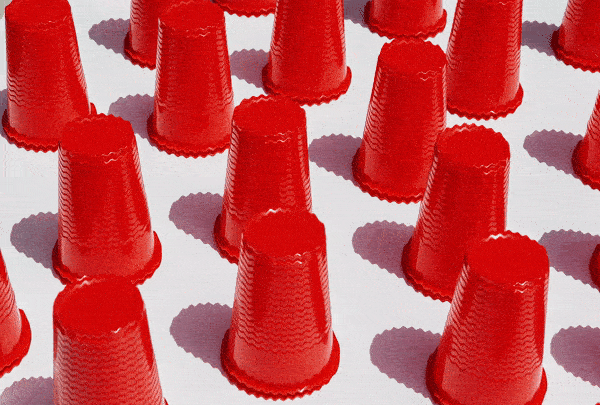Staying Sober: How to Kick a Bad Habit and Keep Kicking It Every Day

"Habit" has become a bit of a buzzword in recent years, something to be "hacked" to "level up" your productivity. Sound familiar?
In actuality, habits are nothing more than regular patterns of behavior we form with both positive and negative influences on our lives. While it's smart to focus on establishing positive habits for ourselves, we should put just as much, if not more, focus on breaking bad ones. However, breaking bad habits is incredibly difficult, even when we can rationally identify something that is bad for us.
This is why sobriety, for people who stick to it, is such a celebrated feat. You're only sober as long as you don't drink. Once you break the streak, it becomes all too easy to fall back into the habit.
Why are habits so hard to break?
Researchers have sought to answer this question definitively, but the truth is nuanced, individual and multifaceted. According to research from the National Institutes of Health, we form most habits through repetition, and they can often be helpful actions such as brushing our teeth as soon as we wake up. Of course, bad habits form this way, too.
The most dangerous habits are ones that activate dopamine receptors—our brain's reward system—which creates a feeling of pleasure. When habits are perceived by our brains as pleasurable, they are much more difficult to quit. It's as if our brains, by craving the action, are actively working against us when we're trying to quit.
In a way, it's highly Pavlovian. For example, someone who drinks when they are anxious may easily fall victim to this line of logic: I am anxious; a drink will calm my nerves. Doing this once isn't likely to send a person tumbling into alcoholism, but continually following this pattern of belief has the potential to go from "a drink will calm my nerves" to "a drink will make me feel better."
Take Pittsburgh native Nick, who asked not to share his last name. In college, Nick got high for the first time. He'd tried pot before but "must have been doing it wrong because it never worked," he said.
Then, it did.
Nick's depression was unmedicated at the time, and he made the discovery that pot was pleasurable just as his mental health was plummeting dramatically. His pot-smoking regularly interfered with his daily activities, such as household chores and completing schoolwork.
But when he was high, he didn't feel depressed.
"I absolutely think you can get addicted to marijuana," he said. "Or at least the idea and ritual of using it, chasing that feeling you got when you had the really awesome high."
This isn't some "pot is a gateway drug" rhetoric or an anti-marijuana hit piece, but research from the National Institute on Drug Abuse does indicate you can get addicted to pot. It isn't physically addictive the way heroin is, but our brains can become dependent on it when we use it frequently in high amounts because the brain will adapt and reduce the production of, and sensitivity to, its own endocannabinoid neurotransmitters. In effect, we experience withdrawal much in the same way someone might with alcohol.
We draw the line between dependency and addiction when we start using a substance despite its interference with our day-to-day life. Essentially, addiction is a habit taken to its most dangerous extreme.
Sobriety is difficult because our minds—and sometimes our bodies—change chemically from repetitive exposure to a substance. When we're dependent on a substance, sobriety requires a massive amount of willpower and support, as we must overpower our own minds, not just once but repeatedly.
How to break a bad habit
Breaking bad habits and addictions is rarely a case of quitting cold turkey and never looking back. That's generally not how habitual activities work, especially ones in the realm of dependency or addiction. Our brains crave the specific chemical response that only the addictive substance can provide; in some instances, our bodies may feel physically weaker or sick. Several days of cold sweating and vomiting sounds much less appealing than an old fashioned.
So, rather than "breaking" a habit, perhaps we should be thinking in terms of "redirecting" our cravings.
"The factor I try to encourage with my clients is replacing those urges to use with healthy coping skills, which can be anything from meditation to exercise," said Ashley Mudrinich, L.P.C., a therapist based in Pittsburgh who treats a variety of mental health issues, including depression, anxiety, trauma, PTSD and addiction. "Whichever activity the client finds motivating and engaging. It can be distracting and an effective way to refocus that energy."
The additional benefit of habit replacement such as this is that while we're eliminating the bad habit from our lives, we're also establishing a positive one. Rather than leaving a hole where that bad habit used to be, we are utilizing the time in an effective way.
"Another important factor I introduce to my clients is the prevalence of trauma and struggle with which individuals use drugs and alcohol to cover up or numb their feelings," Mudrinich added. "If we can begin to uncover these feelings and process that trauma, the need to block it out with substances will be eliminated."
Consider Nick's story and how getting high served as temporary relief from intense feelings of depression. Weed was never going to fully address his core problem, depression. If anything, his mental health was waylaid. A more effective way of managing depression—or anxiety, post-traumatic stress disorder, trauma or whatever else—is through therapy and, potentially, psychiatric medications prescribed by a qualified medical professional.
Creating an association between feeling good and an unhealthy habit doesn't solve the core issue that initially led you to seek out a feel-good substance in the first place.
Ultimately, these habits come from some established behavior, even though we may be unaware we're forming them. Again, habits actively change the way our brains work, and ridding ourselves of them is a terribly difficult feat, even more so when the habit dips into dependency or addiction.
On top of replacing bad habits with good ones and working with a therapist, the most important goal for someone trying to break a bad habit is to establish a feeling of support. If you know someone who is struggling to make improvements to their life, an encouraging word is never wasted.
If you believe you may be addicted to a harmful substance, call the free hotline for the Substance Abuse and Mental Health Services Administration (SAMHSA) at 1-800-662-HELP (4357).




















